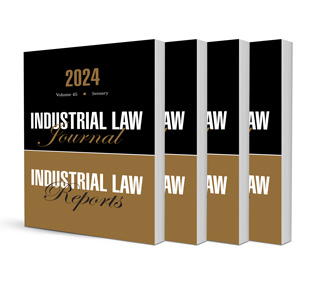The Protection of Confidential Information in Restraint of Trade Agreements

The Protection of Confidential Information in Restraint of Trade Agreements
Authors Michelle van Eck & Marthinus van Staden
ISSN: 2413-9874
Affiliations: Associate Professor, Department of Private Law, University of Johannesburg; Associate Professor, School of Law, University of the Witwatersrand
Source: Industrial Law Journal, Volume 45 Issue 4, 2024, p. 2187 – 2210
https://doi.org/10.47348/ILJ/v45/i4a3
Abstract
This article examines the balance between protecting an employer’s confidential information and the enforceability of restraint of trade agreements. Central to the discourse is the principle that while employers legitimately seek to safeguard their proprietary information and trade secrets, such measures must align with public policy considerations to avoid unduly curtailing employees’ employment opportunities. Restraint of trade clauses are not inherently invalid but must be scrutinised for their reasonableness, necessity in protecting legitimate business interests and compliance with public policy. Focusing on confidential information as a key protectable interest, the article delineates the conditions under which such information qualifies for protection and how its misuse by former employees poses a legitimate concern for employers. The article underscores a growing tendency to prioritise the safeguarding of employers’ interests, particularly concerning proprietary information. This focus has led to foundational contractual principles being overlooked. The article argues for a nuanced understanding that considers the confidentiality undertaking, location and timing. It underscores the need for the judicious drafting and enforcement of restraint of trade clauses and confidentiality undertakings, guided by clear legal principles that safeguard both employers’ proprietary interests and the public interest in fair competition and employment mobility.


